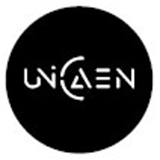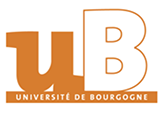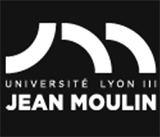Introduction
The University of Lille is a public comprehensive university located in Lille, France. It is one of the largest universities in France and an important and leading university in the French-speaking world.
Overview
Student size: With more than 74,000 students, including about 10,000 international students, it is one of the largest French-speaking universities in France and the world.
Number of teachers: There are 3,300 academic staff and 6,700 administrative staff.
History
The history of the University of Lille can be traced back to the University of Douai, which was established in 1559. It moved to Lille in 1896 and was organized into three independent universities located on different campuses in 1970, namely the University of Lille I (Science and Technology), the University of Lille II (Law, Management, Health) and the University of Lille III (Humanities and Social Sciences, Literature, Languages and Arts). On January 1, 2018, the three universities merged into one again.
Foundation time
The University of Douai was established in 1559 and later in 1896. In 2010, the three universities moved to Lille and changed their names. In 2018, the three universities merged again to become the current University of Lille.
School Strength
Teaching Quality: As one of the famous comprehensive universities in France, the University of Lille has outstanding performance in teaching, providing students with a rich variety of professional choices and high-quality teaching resources, and the students trained have strong competitiveness in the job market and academic fields.
Scientific Research Level: The school has 66 research laboratories, supports 350 doctoral dissertations and publishes 3,000 scientific publications each year. It has an important position in the scientific community and cooperates with many organizations and schools, such as the Pasteur Institute of Lille, the University Hospital of Lille, the French National Center for Scientific Research, and the French National Institute of Health and Medical Research.
Institutional Nature
Public research university.
Educational Philosophy
The University of Lille is committed to imparting innovative technologies to learners, achieving greater international openness, focusing on cultivating students' critical thinking and international vision, encouraging students to look at problems from different perspectives, and emphasizing the dissemination and development of research results through international seminars, technology transfer to companies, and training and mobility of young researchers.
Key laboratories and disciplines
Key laboratories: The school has 66 Research laboratories, covering multiple disciplines, such as biology, chemistry, physics, computer science, medicine, law, humanities and social sciences, etc., provide an important platform for scientific research.
Key disciplines:
Science and engineering: Lille University 1 has particularly strong strength in science and engineering, covering mathematics, mechanics, physics, computer science, electronics and other majors, among which computer science and system engineering ranks 10th among majors in the country.
Medicine and health: Lille University 2 has outstanding research results in medicine, pharmacy and other professional fields. Its medical major has trained a large number of professional medical talents for France. Majors such as health engineering also combine the knowledge of medicine and engineering to provide support for the development of the health industry.
Humanities and social sciences: Lille University 3 has a deep academic accumulation in the field of humanities and social sciences, such as history, art history, sociology, psychology and other majors, providing students with systematic humanities and social sciences education and research opportunities.
Faculty
The University of Lille has 15 faculties and faculties in six main areas, including arts, literature and languages; law, economics and management; health; humanities and social sciences; sports; science and technology.
Ranking
2024 QS World University Rankings: 631-640
2020 Times Higher Education World Young University Rankings: 150-200
2020 U.S. News World University Rankings: 228
2021 QS World University Rankings: 751-800
Expenses
Tuition fees: Tuition fees at French public universities are fully borne by the state. Students only need to pay a registration fee, which is generally around 170-300 euros for undergraduates and around 200-400 euros for masters and doctoral students.
Living expenses: The living expenses in Lille vary from person to person, generally including accommodation, food, transportation, daily necessities, etc., which costs about 800-1200 euros per month.
Campus
Campus distribution: The University of Lille has five main university campuses, which are distributed in different cities in the Lille metropolitan area, including Lille, Villeneuve-d'Ascq, Roubaix, Tourcoing, etc. In addition, there are campuses in Arras, Gravelines, Valenciennes, Utrecht and other cities.
Teaching facilities: The school is equipped with modern teaching buildings, libraries, laboratories and other teaching facilities. For example, the Science and Technology Campus has 150 hectares of land and hundreds of buildings. It also has engineering schools such as the Lille Central Polytechnic Institute and the Lille Higher School of Chemistry, as well as several research laboratories, and is connected to the European "Haut-Bonne" Science Park; the library of the University of Lille is rich in books, such as the "Lilliard Learning Center Innovation Hall", which is an ultra-modern scientific library that provides students with good learning resources.
Living facilities: There are various restaurants, cafes, supermarkets and other living facilities around the campus to meet the daily needs of students. In addition, the school also provides students with a wealth of sports facilities and cultural activity venues to promote the all-round development of students. The school often holds various cultural activities and academic lectures, providing students with a broad space for development. It also encourages students to participate in community activities and volunteer services to cultivate students' sense of social responsibility and teamwork spirit.
-

University of Angers
-

University of Caen Normandy
-

University of Bordeaux
-

Claude Bernard University Lyon 1
-

University of Burgundy
-

CY Cergy Paris University
-

Clermont Auvergne University
-

University of Artois
-

Jean Moulin University Lyon 3
-

University of Franche-Comté
-

Mesoamerican University
-

Istmo University
-

Mariano Galvez University of Guatemala
-

Regional University of Guatemala
-

Galileo University
-

Francisco Marroquín University
-

Rafael Landívar University
-

University of the Valley of Guatemala
-

University of San Carlos of Guatemala
-

Technological Institute of Tlaxcala Plateau
-

Golfo University
-

Technological University of South Sonora
-

Technological University of Huejotzingo
-

Tizimín Institute of Technology
-

Chilpancingo Institute of Technology

